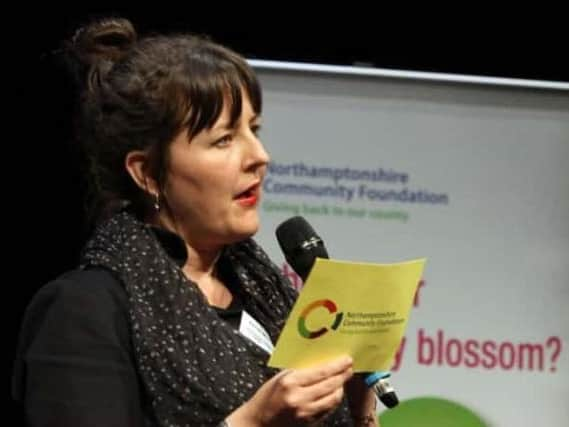Opinion: Well-being should be at the heart of our future economy


During this Covid-19 public health crisis, green space has been vital to the wellbeing of local residents and communities, especially for people without access to gardens or outdoor space.
A wealth of evidence has been forthcoming in recent years to show that regular time spent in nature, and in and around green spaces and trees, can have a significant impact on our health and wellbeing.
It has coined the phrase ‘the natural health service’.
Advertisement
Hide AdAdvertisement
Hide AdWe’re very lucky in Northampton, having a range of great public parks and green spaces on our doorsteps, including Abington Park, The Racecourse, Charles Bradlaugh Fields, Delapre Abbey, Beckets Park, Victoria Park, John Dryden Lakes and Hunsbury Hill Country Park.
A recent survey by CPRE – the countryside charity – has evidenced that people’s experience of lockdown means the general population is valuing public green spaces more than ever, although there has been a reduction in use due to especially vulnerable residents having to self-isolate or shield themselves indoors for the duration of the pandemic.
People have become more aware of the need for access to green space and nature for the benefit of their physical and mental wellbeing as they take their daily government-advised exercise, while still exempting social actions such as gatherings with friends.
However, as Peter Howard from the Landscape Research Group points out, we are also seeing highlighted the inequality of access to available green spaces and countryside.
Advertisement
Hide AdAdvertisement
Hide AdFriends of the Earth campaigner Guy Shrubsole recently wrote a letter to The Guardian newspaper calling for all golf courses and grounds of private schools to be made accessible to the public during the current lockdown.
The New Economics Foundation has reported the need to make green space more accessible if we are not to exacerbate a potential mental health crisis among the general population.
Pandemics have historically been an opportunity to force infrastructure improvements in public health for the general good.
The cholera pandemic of the mid-1800s, for example, gave way to the construction of a modern sewer system and improved green and urban spaces for all to use.
Advertisement
Hide AdAdvertisement
Hide AdGiven the reduced number of cars on the roads, another solution to more space could include shutting off some streets to cars so that people are not having to navigate social distancing on narrow pavements.
The UK Government, in the meantime, has pledged £2 billion to get more people safely walking and cycling during and post Covid-19.
This is not new funding however, it is part of a £5 billion package of funding announced for buses and cycling infrastructure back in February.
Give a thought to people living in rural areas of Northamptonshire who have seen their bus service cut in recent times.
Advertisement
Hide AdAdvertisement
Hide AdThanks to a coalition of parish councils, the ‘village hopper’ which covers several villages across South Northamptonshire, enables many people without access to cars to safely travel for essential supplies and go to work as key workers.
So, let’s make sure that the aforesaid package of funding does not cut back on getting rural public transport properly funded.
The greening of our community and public infrastructure needs to be long term and embedded in law.
In terms of park spaces, a Charter for Parks would help create a legal directive and responsibility to maintain and protect public parks by local authorities, and, especially, prevent this land being sold off for development interests.
Advertisement
Hide AdAdvertisement
Hide AdThere is currently no legislation for this, and I personally find this alarming.
If we are to improve and protect access to green spaces and invest in green transport infrastructure for general public wellbeing we can’t go back to ‘normal’ after this public health crisis.
We need renewal not simply recovery.
And that will require an overhaul of the economy, putting wellbeing at the heart of how it functions.